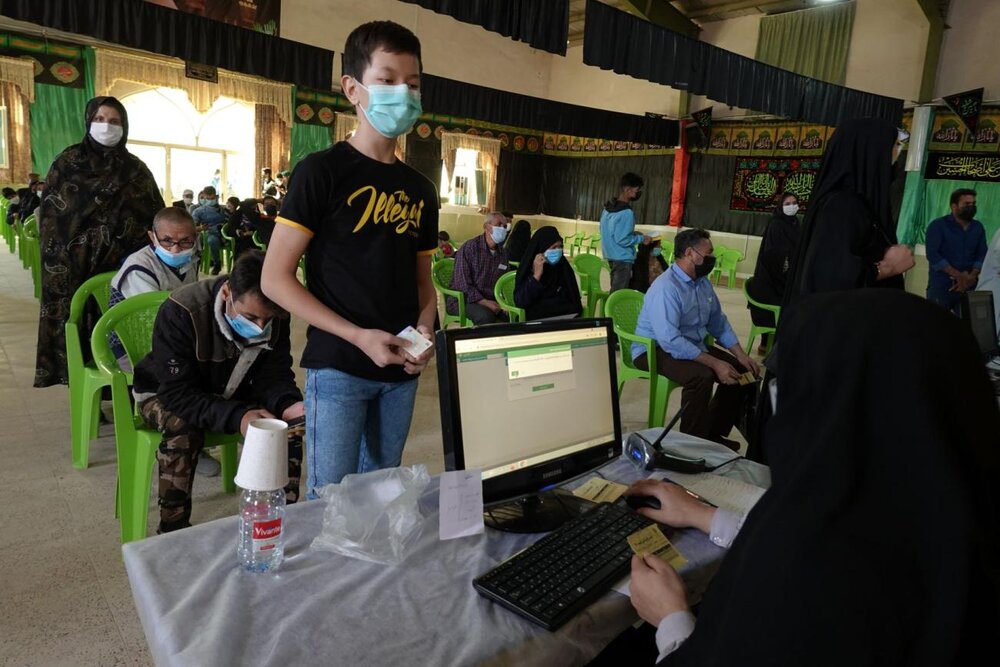Iran to vaccinate refugees against coronavirus

TEHRAN – Refugees in Iran will be vaccinated in cooperation with international organizations, Mehdi Mahmoudi, the director of the bureau for aliens and foreign immigrants at the Ministry of Interior, has announced.
Due to the importance of vaccinating refugees and foreign nationals to prevent transmission, Iran holding numerous meetings with international institutions, after obtaining the necessary permits from the Ministry of Health, was able to receive the first consignment of COVID-19 vaccine, amounting to 1.6 million doses through COVAX facility.
Over 1.6 million doses of vaccine delivered to Iran through COVAX facility for refugees. Iran is one of the countries affected by the pandemic that has been able to widely implement vaccination programs in recent months and vaccinate refugees living in the country at the same time as Iranian nationals.
Iran has always been a major supporter of refugees and displaced persons, and the provision of services to asylum seekers for four consecutive decades is a testament to this.
Without any discrimination, Iran has provided various services to a large number of refugees and foreign immigrants in the fields of education, health, treatment, livelihood, vocational training, and employment, with minimal assistance from the international community.
World's fourth-largest refugee community
Iran is hosting the world's fourth-largest refugee community. The country has generously hosted approximately 1 million refugees for the past 30 years. The majority, which mainly came from Afghanistan and Iraq, live in urban areas. Approximately 31,000 of the most vulnerable refugees live in 20 settlements located throughout the country.
Based on the latest statistics, over 3 million Afghans are living in Iran - some 780,000 Afghan refugees, over 2 million undocumented Afghans, and another 600,000 Afghan passport-holders with Iranian visas.
However, in light of the pandemic, all refugees, even those undocumented, benefited from access to free primary health services and free COVID-19 related testing, treatment, and hospitalization, just like Iranian nationals.
The same happened for the vaccination when the country has generously considered refugees over the age of 75 for vaccination against coronavirus.
In order to support the refugees living in the country, the seventh phase of the health insurance plan will cover 120,000 vulnerable refugees through a memorandum of understanding signed between the Health Insurance Organization and the United Nations High Commissioner for Refugees.
In Iran, UNHCR is seeking $16.2 million for its COVID-19 emergency, while requires an additional $98.7 million to support Iran in maintaining and sustaining its commendable inclusive refugee policies, under the umbrella of the Solutions Strategy for Afghan Refugees (SSAR).
FB/MG
Leave a Comment